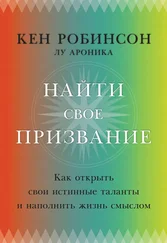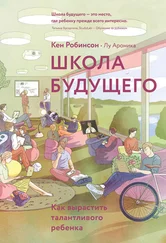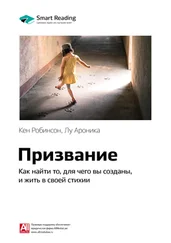Кен Робинсон - The Element
Здесь есть возможность читать онлайн «Кен Робинсон - The Element» весь текст электронной книги совершенно бесплатно (целиком полную версию без сокращений). В некоторых случаях можно слушать аудио, скачать через торрент в формате fb2 и присутствует краткое содержание. Год выпуска: 2009, ISBN: 2009, Издательство: Penguin Books Ltd, Жанр: Самосовершенствование, на английском языке. Описание произведения, (предисловие) а так же отзывы посетителей доступны на портале библиотеки ЛибКат.
- Название:The Element
- Автор:
- Издательство:Penguin Books Ltd
- Жанр:
- Год:2009
- ISBN:9780141911250
- Рейтинг книги:3 / 5. Голосов: 1
-
Избранное:Добавить в избранное
- Отзывы:
-
Ваша оценка:
- 60
- 1
- 2
- 3
- 4
- 5
The Element: краткое содержание, описание и аннотация
Предлагаем к чтению аннотацию, описание, краткое содержание или предисловие (зависит от того, что написал сам автор книги «The Element»). Если вы не нашли необходимую информацию о книге — напишите в комментариях, мы постараемся отыскать её.
The Element — читать онлайн бесплатно полную книгу (весь текст) целиком
Ниже представлен текст книги, разбитый по страницам. Система сохранения места последней прочитанной страницы, позволяет с удобством читать онлайн бесплатно книгу «The Element», без необходимости каждый раз заново искать на чём Вы остановились. Поставьте закладку, и сможете в любой момент перейти на страницу, на которой закончили чтение.
Интервал:
Закладка:
His parents were right in assuming he had a promising future ahead of him, but that future had nothing to do with the legal profession. Coelho’s novel The Alchemist was a major international best seller, selling more than forty million copies around the world. His books have been translated into more than sixty languages, and he is the best‐selling Portuguese‐language writer in history. His creative reach extends to television, newspapers, and even popular music; he has written lyrics for several hit Brazilian rock songs.
It’s entirely possible that Paulo Coelho would have made an excellent lawyer. His dream was to write, though. And even though his parents tried extraordinarily hard to put him on “the right course,” he kept his focus on his Element.
Few of us are encouraged to conform to our family’s expectations as firmly as Paulo Coelho was. But many people face barriers from family and friends: “Don’t take a dance program, you can’t make a living as a dancer,” “You’re good at math, you should become an accountant,” “I’m not paying for you to be a philosophy major,” and the rest.
When people close to you discourage you from taking a particular path, they usually believe they are doing it for your own good. There are some with less noble reasons, but most believe they know what’s best. And the fact is that the average office worker probably does have more financial security than the average jazz trumpeter. But it is difficult to feel accomplished when you’re not accomplishing something that matters to you. Doing something “for your own good” is rarely for your own good if it causes you to be less than who you really are.
The decision to play it safe, to take the path of least resistance, can seem irresistible, particularly if you have your own doubts and fears about the alternatives. And for some people it seems easier to avoid ruffling feathers and have the approval of parents, siblings, and spouses. But not for everyone.
Some of the people in this book had to pull away from their families, for a while at least, to become the person they needed to be. Their decision to take the less comfortable route and accept the price of troubled relationships, tense family holidays, and, in Coelho’s case, even lost brain cells eventually led them to considerable levels of fulfillment and accomplishment. What each of them managed to do was weigh the cost of disregarding their loved ones against the cost of relinquishing their dreams.
When Arianna Stasinopoulos was a teenager in Greece in the 1960s, she had a sudden and passionate dream. Leafing through a magazine, she saw a picture of Cambridge University in England. She was only thirteen years old, but she decided on the spot that she had to be a student there. Everybody she told about this, including her friends and her father, said it was ridiculous idea. She was a girl, it was too expensive, she had no connections there, and this was one of the most prestigious universities in the world. No one took her seriously. No one except Arianna herself, that is. And one other person.
Her mother decided that they had to find out if Arianna’s dream was even remotely possible. She made some inquiries and learned that Arianna could apply for a scholarship. She even found some cheap air tickets “so we could go to England and see Cambridge in person. It was a perfect example of what we now call visualization.” It was a long flight to London, and it rained the entire time they were in Cambridge. Arianna and her mother didn’t meet anyone from the university; they simply walked around and imagined what it would be like to be there. With her dream reinforced, Arianna applied as soon as she was eligible.
To her delight and everyone’s astonishment (except her mother’s), Cambridge accepted Arianna—and she won a scholarship. At the age of sixteen, she moved to England and went on to graduate from Cambridge University with an M.A. in economics. At twenty‐one, she became the first woman president of the famed debating society, the Cambridge Union.
Now based in the United States, Arianna Huffington is the author of eleven books on cultural history and politics, a nationally syndicated columnist, and cohost of Left, Right & Center , National Public Radio’s popular political roundtable program. In May 2005, she launched the Huffington Post , a news and blog site that has become “one of the most widely read and frequently cited media brands on the Internet.” In 2006, Time magazine put her on their list of the world’s hundred most influential people.
For all her success, Huffington knows that the biggest obstacles to achievement can be self‐doubt and the disapproval of other people. She says this is especially true for women. “I am struck by how often, when I asked women to blog for the Huffington Post , they had a hard time trusting that what they had to say was worthwhile, even established writers.… So often, I think, we as women stop ourselves from trying because we don’t want to risk failing. We put such a premium on being approved of, we become reluctant to take risks.
“Women still have an uneasy relationship with power and the traits necessary to be a leader. There is this internalized fear that if we are really powerful, we are going to be considered ruthless or pushy or strident—all those epithets that strike right at our femininity. We are still working at trying to overcome the fear that power and womanliness are mutually exclusive.”
Huffington says there were two key factors in pursuing her early dream. The first was that she didn’t really understand what she was getting herself into. “My first taste of leadership came in a situation in which I was a blissfully ignorant outsider. It was in college, when I became president of the Cambridge Union debating society. Since I had grown up in Greece, I had never heard of the Cambridge Union or the Oxford Union and didn’t know about their place in English culture, so I wasn’t weighed down with the kinds of overwhelming notions that may have stopped British girls from even thinking about trying for such a position…. In this way, it was a blessing that I started my career outside my home environment. It had its own problems in that I was ridiculed for my accent and was demeaned as someone who spoke in a funny way. But it also taught me that it is easier to overcome people’s judgments than to overcome our own self‐judgment, the fear we internalize.”
The second factor was the unwavering support of her mother. “I don’t think that anything I’ve done in my life would have been possible without my mother. My mother gave me that safe place, that sense that she would be there no matter what happened, whether I succeeded or failed. She gave me what I am hoping to be able to give my daughters, which is a sense that I could aim for the stars combined with the knowledge that if I didn’t reach them, she wouldn’t love me any less. She helped me understand that failure was part of any life.”
Groupthink
Positively or negatively, our parents and families are powerful influences on us. But even stronger, especially when we’re young, are our friends. We don’t choose our families, but we do choose our friends, and we often choose them as a way of expanding our sense of identity beyond the family. As a result, the pressure to conform to the standards and expectations of friends and other social groups can be intense.
Judith Rich Harris is a developmental psychologist who has looked at the influences on young people of their friends and peer groups. She argues that three main forces shape our development: personal temperament, our parents, and our peers. The influence of peers, she argues, is much stronger than that of parents. “The world that children share with their peers,” she says, “is what shapes their behavior and modifies the characteristics they were born with, and hence determines the sort of people they will be when they grow up.”
Читать дальшеИнтервал:
Закладка:
Похожие книги на «The Element»
Представляем Вашему вниманию похожие книги на «The Element» списком для выбора. Мы отобрали схожую по названию и смыслу литературу в надежде предоставить читателям больше вариантов отыскать новые, интересные, ещё непрочитанные произведения.
Обсуждение, отзывы о книге «The Element» и просто собственные мнения читателей. Оставьте ваши комментарии, напишите, что Вы думаете о произведении, его смысле или главных героях. Укажите что конкретно понравилось, а что нет, и почему Вы так считаете.












